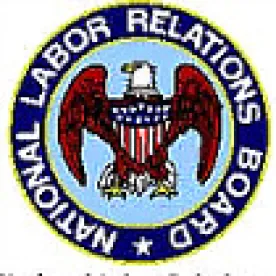When purchasing a business, the buyer often desires to set new terms of employment to more efficiently and profitably operate the new enterprise. However, if the seller’s employees are members of a bargaining unit, the buyer must -- if planning on hiring all the seller’s union employees -- clearly advise employees of their new terms and conditions of employment, or the buyer will be unable to make any changes to same without first bargaining with the union.
Traditionally, as enunciated in Spruce-Up Corp., 209 NLRB 194 (1974), a new employer need only bargain with the union prior to setting wages, benefits and conditions of employment for the buyer’s new employees where it was “perfectly clear that the new employer plans to retain all of the employees in the (bargaining) unit.” Spruce-Up further held the perfectly clear bargaining obligation “should be restricted to circumstances in which the new employer has … misled employees into believing they would all be retained without change in their wages, hours or conditions of employment, or … failed to clearly announce its intent to establish a new set of conditions prior to inviting employees to accept employment.” Thus, Spruce-Up, and most all subsequent cases, restricted application of the buyer’s bargaining obligation to when: (1) all former bargaining unit employees were hired; and (2) the former bargaining unit employees accepted employment believing the terms of their prior collective bargaining agreement applied. Application of Spruce-Up has, however, been restricted in recent years. That may be about to change.
During President Obama’s administration, the NLRB took a restrictive view of Spruce-Up and found “perfectly clear” status (and a bargaining obligation) when a “successor (employer) expressed an intent to retain the predecessor’s employees without making it clear that employment will be conditioned on the acceptance of new terms.” Thus, if the new employer indicated an “intent to retain” all current employees (or if the seller indicated the purchaser’s intent to retain all employees) without mentioning the new terms and conditions of employment, the new employer was obligated to bargain with the union over changes to terms and conditions of employment. Former NLRB Chairman Miscimarra argued such an interpretation of Spruce-Up made successorship law a “legal trap” for new employers.
In two very recent decisions, new NLRB Chairman Marvin Kaplan urged the Board to adopt the traditional view of Spruce-Up and overrule the Obama Board’s interpretation of same. See First Student Inc., a Division of First Group America, 366 NLRB No. 13 (February 6, 2018) and Walden Security, Inc., 366 NLRB No. 44 (March 23, 2018). In Chairman Kaplan’s view, application of the “intent to retain” standard is inconsistent with Spruce-Up and U.S. Supreme Court precedent. Moreover, in Walden, new Member William Emanuel expressed that he is “open” to a re-examination of the Board’s recent Spruce-Up cases using the “intent to retain” standard.
With the Senate expected to confirm Republican nominee John Ring to the Board the week of April 9, there appears to be a likely new (3-2) majority at the Board who are primed to “re-examine” the Obama Board’s interpretation of Spruce-Up, likely in order to nix the “intent to retain” standard. However, pending any re-examination and return to the earlier Spruce-Up standards, employers acquiring new businesses with bargaining units that wish to implement new terms of employment should cautiously comment on plans for the new workforce -- and only commit to hiring all workers – after making it very clear that new terms and conditions of employment will apply to new hires.




 />i
/>i

